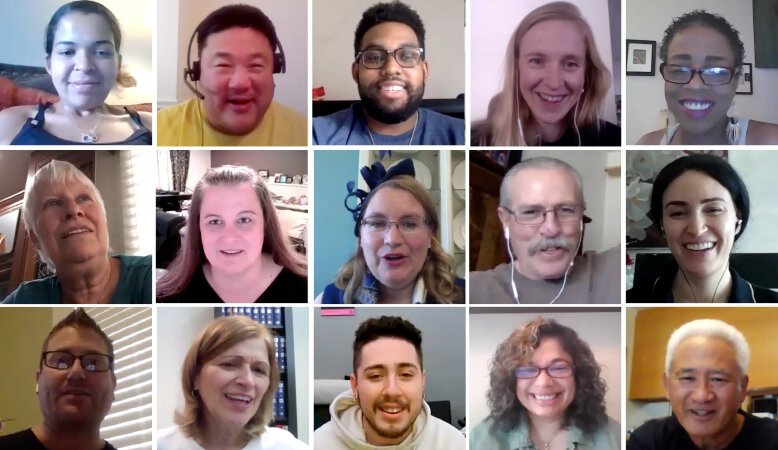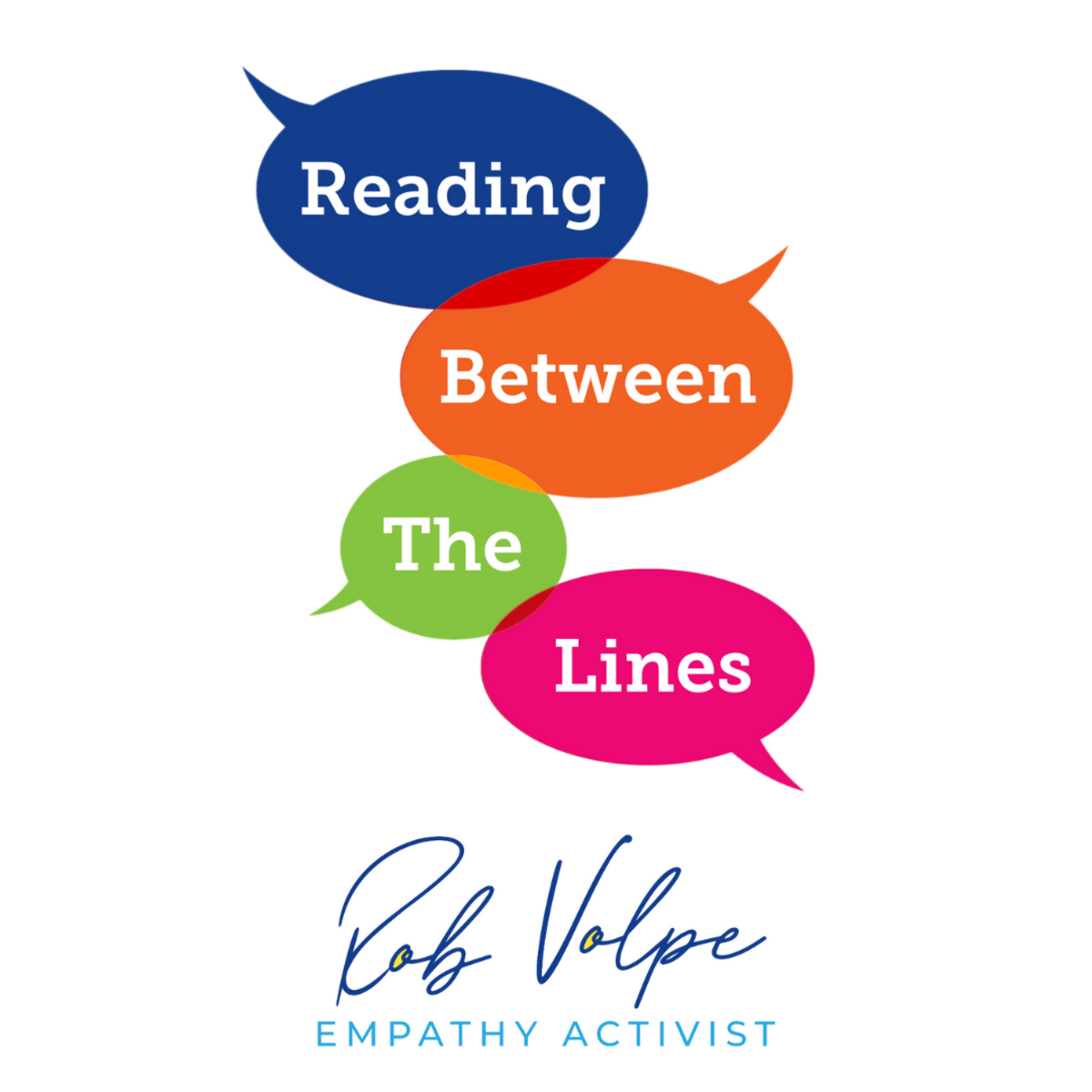Table of Contents
→ The Journey Thus Far
→ Q&A: What’s Your Experience Been with Narcissists?
→ Has This Happened to You?
→ A Throwback to 2020
Hello! Hope you are having a great day!
Welcome to all the new members of the community - thank you for subscribing!
As always, a quick reminder of what you can expect in each edition of Reading Between the Lines…
My thinking is here in the newsletter. Links are for diving deeper.
I strive to deliver ‘news you can use’.
I also share insights into human behavior and topics I’m thinking about.
I include amusing or interesting “slice of life” moments.
The Q&A feature is based on questions that come up in conversation - please send me your questions!
I’d like to hear your thoughts- ‘reply’ to this email or reach out directly to: [email protected]
The Journey Thus Far…
Some experiences we’re able to analyze and learn from almost immediately after they happen. It might have seemed significant in the moment but in short course we gain perspective and are able to see how it has impacted us and our path forward.
Not all events distance themselves quickly enough and far enough that we can readily see what that was and the impact that it had on us. The COVID-19 pandemic is one of those things.
As the world was shutting down, researchers around the world were springing into action, formulating plans to study this once in a lifetime event and how it alters various aspects of society.
At Ignite 360, we launched Navigating to a New Normal, a qualitative and quantitative study that followed 16 individuals through the depths of the pandemic and out the other side. We’re still talking with these qual participants. Recently, as the 4th anniversary of the study’s start was approaching, we asked the respondents what their journey has been as a result of the pandemic. What affect did it have on them.
We’ve asked this question at various points in the past 4 years. What was different this time is that the pandemic is getting far enough away that they can view it in the rearview mirror, see it in its entirety, and trace the path to behaviors they have today or things they are witnessing as a direct result of the pandemic.
They could see how it had affected them. This is some of what they had to say…
For people who live in such fragmented times, where we have divided ourselves up into little bubbles, when it comes to asking these big questions, there is often pushback that because not everyone is in the same place, the changes people have made doesn’t have validity.
This is true of the affects of the pandemic. Not every participant had changes in their life that they could trace back to the pandemic. Some experienced changes that were due to lifestage. Retiring, starting a new business, having children. Those events would have happened regardless of the pandemic. And as we explored in conversation with these individuals, it wasn’t evident that they went about those events any differently due to a residual effect of the pandemic.
That’s ok. Major events effect everyone differently and we all have our own way of coping. It doesn’t invalidate the experience of others, however. It’s important that we listen and learn in order to understand. When enough people are seeking a change, it doesn’t have to be everyone, just enough of a group that the voices can be heard.
What struck me in the responses were some of the direct changes. When Jill told me she was a different person, unable to commit to plans, because of the pandemic and the fear of having things cancel, I could tell this was real and it was a new recognition on her part.
Similarly, Jenika sees the butterfly effect of decisions she was making during the pandemic which led her family to sell their house and move to South Carolina.
Others have reflected on the value of friendships and how they are moving through the world. Some of this might have happened on its own but the pandemic accelerated it and put everyone in a similar situation with societal stimulus all being the same, which is playing out into different outcomes for people.
The darkness in society, and people in the video referred to it as a darkness, was also surprising in how it came forward. We aren’t as nice. Happiness levels in the US are down. As Marco said, we all have PTSD and many of us don’t even realize it.
It’s jarring to live in a world where some people took an existential threat far more seriously than others. And yet the rules of who survived were murky and not applied equally.
I’m reminded of what it was like living in New York City in September 2001. Charles and I had already planned a trip to South Carolina to visit my grandmother and some cousins. Two weeks after the attacks we nervously boarded our flight. Once we arrived in the Palmetto State, it was jarring. People were going about their day as if nothing had happened. We were still shaken by what we had experienced. While I’ll assume positive intent that these individuals had been shaken on the day as well, the trauma wasn’t as visible on them.
The same thing happened a month later on a trip to San Francisco. People were gathered in cafes worried about the Dot Com Bust and looking for work. There was little talk about the largest terrorist attack on American soil in history. We felt utterly alone as we had to continue processing our thoughts and feelings. The same is true of the pandemic.
It’s going to take decades to truly understand what happened and how it has affected us. In the meantime, we can collectively support everyone where they are on their journey by meeting them where they are. That means taking the time to ask questions and listen. Yes, to build empathy.
I recently listened to a terrific podcast called Blindspot. Each season they look at different events in history and examine the ‘blindspot’ where people were unaware or ignoring what was going on. The latest season explored the AIDS epidemic and the marginalized communities - beyond the white gay man - that had higher rates of transmission and fatalities. Interviews with nurses, patients, activists, it’s worth the listen. And I couldn’t help but think of what stories we’ll uncover in 2065 as we look back on this period in time.
Q&A: What’s your experience been with narcissists?
Honestly, too many to include in this newsletter. From the garden variety to the full blown sociopath, I’ve had some experience with them all.
Narcissists are drawn to people who are empathetic. One reason is because we have what they don’t - the ability to connect and feel what others are feeling. And then they are awfully good at manipulating us to feel for them - using our own powers of empathy against us.
I recently heard Cambridge University professor and researcher Simon Baron-Cohen talk about those on the anti-social disorder spectrum. He observed that sociopaths and those with narcissistic personality disorder are actually able to have cognitive empathy - see the perspective of someone else. It’s how they are able to manipulate other people so easily. (And when you consider that empathy let’s you understand another’s perspective, it can be used for selfish outcomes.)
I’d like to explore this topic or narcissists and empaths further. To do that, I’d love to hear from you! What have your experiences been? From the beauty looking at their reflection in the mirror to the more manipulative - please tell me your story and we can unpack it here (anonymously with identifying details modified, of course!)
Has This Happened to You???
Last Thursday I drove the 50 miles from my house in San Francisco to the headquarters of a little company in Los Gatos, CA called Netflix. Perhaps you’ve heard of them?
I was brought in to give a presentation to a data security team on empathy in the workplace. I had the presentation ready to go. My laptop and copies of my book were in my car.
I even arrived early, which is not my usual M.O. I sat in the car for a few minutes to eat up the early arrival time. As the clock brushed past 9:30, I stepped out of the car, moved toward the hatchback and did my usual 3 pocket tap. Front left, front right and back left. I could feel my car keys. I could feel my phone. I could feel a few other assorted items I had tucked in. What I couldn’t feel was my wallet.
No wallet. Thirty minutes before showtime. An hour away from home in each direction. If they didn’t accept my author photo on the dust jacket as proof of identity, I wasn’t sure I was going to be able to get in the building.
I share this story because as a result of it, I was too flustered walking into the building to take a picture in front of a Netflix logo. Big smile on my face, excited to be there and share empathy skills with the team.
It’s hardly a recreation but I decided to take some sort of photo in front of a Netflix logo, with my wallet, which was sitting at home exactly where I had left it the night before. The photo is hardly proof I was there, just take my word for it.
Until I hopefully get invited back for another session…

I was there! I swear I was. Why would I make this up???
Throwback to 2020
Coming full circle on the 4 year anniversary of the pandemic, at the 1 year anniversary in 2021, we asked the study participants to share with us any photos they had that they felt captured what it was like during the lockdown and what really told them this was not normal.
We were moved by the results, which we turned into a little carousel with some narration written by each of the participants who submitted photos.
I hope you liked this edition.
Please help spread the word to keep the community growing - pass this newsletter along to someone you know that might also enjoy it. Either forward this email or invite them to subscribe at the click of the button below.
Reading Between the Lines delivers of-the-moment insights into empathy and human behavior; expect practical tips on using the skill of empathy in everyday life and exclusive updates to keep my community close. All on a biweekly basis.



